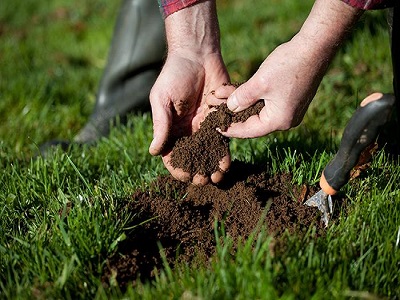
Demands for better quality of crops are driving the growth in Global Bionematicides Market in the forecast period, 2022-2026.
According to TechSci Research report, “Bionematicides Market – Global Industry Size, Share, Trends, Opportunity and Forecast, 2016-2026”, The global bionematicides market has a potential to project an impressive CAGR toward forces growth in the period, 2022-2026, on the account of increasing researches and technological advancement in the agriculture industry. Increasing studies and innovative fertilizers & pesticide manufacturing as biological agriculture products, is anticipated further drive the growth of the global bionematicides market in the upcoming five years. Recent launches of innovative pesticides from various market players are supporting the growth of the global bionematicides market in the next five years. Additionally, surging demands for the effective treatment of nematode infection, and bacterial infection is substantiating the growth of the global bionematicides market in the future five years. Symptoms of nematode infections are not visible with naked eyes. Only experts of the field can identify the visible symptoms that too in case of severe infections. The farmers are demanding for more confirmed and effective treatment of the nematode infection and that too of a biological & organic product thus further aiding the growth of the global bionematicides market in the forecast years, until 2026. Increasing population and demand to provide food for all the population is also a major factor behind global bionematicides market growth in the upcoming five years.
Browse over XX market data Figures spread through 110 Pages and an in-depth TOC on “ Global Bionematicides Market”
https://www.techsciresearch.com/report/bionematicides-market/8084.html
The global bionematicides market is segmented on the basis of type, form, crop type, mode of treatment, infestation, competitional landscape, and regional distribution. Based on type, the market is further fragmented into microbials, and biochemical. Microbials are anticipated to hold the largest revenue shares of the market and dominate the market segment in the upcoming five years on the account of increasing demand for the organic agricultural products. Moreover, demand for the organic food is further aiding the growth of the sub segment and the growth of the global bionematicides market in the next five years. Also, the population is highly concerned about the increasing toxins in the food products due to use of chemical infused pesticides, thus demanding more organic and biological products to enhance crop quality thereby supporting the growth of the global bionematicides market in the future five years.
On the basis of form, the market is divided between liquid and dry form. Liquid form of the bionematicides is anticipated to hold the largest revenue shares of the market in the future five years on the grounds of easier application of the liquid form of bionematicides. The liquid form easily seeps into the soil and eradicates the soil. Moreover, since the nematode infections are widespread, liquid form favors the procedure and further substantiates the growth of the global bionematicides market in the future five years.
Some of the market players, dominating the global market are :
- Bayer CropScience AG
- Beijing Ecoman Biotech Co., Ltd.
- Certis USA LLC
- Dow AgroSciences LLC
- Marrone Bio Innovations, Inc.
- Monsanto Company
- Syngenta AG
- Valent BioSciences Corporation
- T. Stanes & Company Limited
- Bio Huma Netics, Inc.
- FMC Corporation
- BASF SE
These market players along with new market entrants, are focused on extensive research and bringing innovative and advanced products. Technologically advanced fertilizers & pesticides, and advancement in the manufacturing processes would aid in decreasing the cost of the production and aid the players in managing their investments. Moreover, initiatives from the government and private fundings would support the global bionematicides market growth indirectly.
Download Sample Report @ https://www.techsciresearch.com/sample-report.aspx?cid=8084
Customers can also request for 10% free customization on this report.
“North America region is anticipated to dominate the global market analysis on the grounds of increasing usage of bionematicides over the chemical pesticides. Rapidly increasing popularity of the agriculture biotechnology and innovative productions of biopesticides is also aiding to the growth of the regional market along with the growth of the global bionematicides market in the upcoming five years. The United States is experiencing increased production of fruits & vegetable crops along with corn farming. Effects of nematodes is maximum in the fruits & vegetables and thus the demand for the bionematicides market in the next five years. Asia Pacific is expected to register fastest growing CAGR in the upcoming five years on the grounds of rapidly increasing population of the countries like India and China and their demands for higher yielding food crops,” said Mr. Karan Chechi, Research Director with TechSci Research, a research based global management consulting firm.
“Bionematicides Market – Global Industry Size, Share, Trends, Opportunity and Forecast, 2016-2026, Segmented By Type (Microbials v/s Biochemical), By Form (Liquid v/s Dry), By Crop Type (Cereals & Grains, Oilseeds & Pulses, Fruits & Vegetables, Others), By Mode of Treatment (Soil Treatment, Seed Treatment, Foliar Sprays, Others), By Infestation (Root Knot, Cyst Nematodes, Lesion Nematodes, Others), By Region”, has evaluated the future growth potential of global bionematicides and provides statistics & information on market size, structure and future market growth. The report intends to provide cutting-edge market intelligence and help decision makers take sound investment decisions. Besides, the report also identifies and analyzes the emerging trends along with essential drivers, challenges, and opportunities in global bionematicides market.
Contact
Mr. Ken Mathews
708 Third Avenue,
Manhattan, NY,
New York – 10017
Tel: +1-646-360-1656
Email: [email protected]
